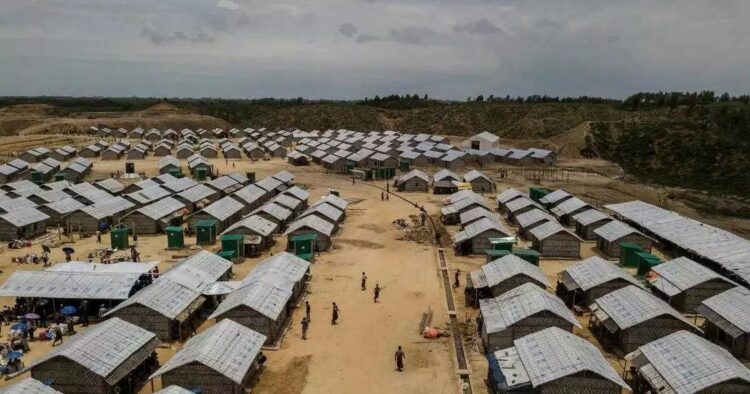Bharat has initiated the deportation of Myanmar nationals who sought refuge in the country following a surge in violence between the junta and rebels in a border region. The move comes amidst a significant influx of civilians escaping the conflict in Myanmar, with many crossing into Bharat’s northeastern states.
In a video shared by Manipur Chief Minister N Biren Singh, the first batch of Myanmar nationals can be seen being sent back. Singh emphasized that while Bharat is not a signatory to the 1951 Refugee Convention, it has extended shelter and assistance to those fleeing the crisis in Myanmar on humanitarian grounds.
First batch of Myanmar nationals who entered India illegally deported today.
Although India is not signatory to the 1951 Refugee Convention, it has given shelter & aid to those fleeing the crisis in Myanmar on humanitarian grounds with a systematic approach. pic.twitter.com/zgte8RfmGl
— N. Biren Singh (@NBirenSingh) March 8, 2024
The deportation follows the Bharatiya government’s decision to terminate a free movement border agreement with Myanmar. This agreement had allowed residents living in border zones to travel a short distance into each other’s territory without a visa. Home Minister Amit Shah cited concerns regarding internal security and the demographic structure of Bharat’s northeastern states as reasons for scrapping the agreement.
Bharat shares a substantial land border of over 1600 kilometers with Myanmar, along with a maritime boundary in the Bay of Bengal. Four northeastern states – Arunachal Pradesh, Nagaland, Manipur, and Mizoram – have borders with Myanmar. The two countries share a rich heritage of religious, linguistic, and ethnic ties, with Myanmar serving as India’s gateway to Southeast Asia as the only ASEAN country adjoining it.
However, areas near the Bharatiya border in Myanmar have witnessed frequent clashes, particularly since the Arakan Army (AA) attacked security forces in November. This attack marked the end of a ceasefire that had been largely upheld since the 2021 military coup. Hundreds of soldiers and civilians fled Myanmar, seeking refuge in India to escape the violence.
The situation in Myanmar has prompted the Bharatiya Ministry of External Affairs to issue advisories, urging Bharatiya nationals in Myanmar’s Rakhine State to evacuate immediately. This move underscores the escalating tensions and risks faced by civilians in conflict-affected areas.
The backdrop of the Rohingya crisis adds complexity to the situation. The Rohingya, a Muslim minority group in Myanmar, have faced persecution and violence for years, leading to mass displacement and refugee flows. The crisis has strained relations between Myanmar and its neighbors, including Bharat, which has grappled with the challenge of balancing humanitarian concerns with security interests.
As Bharat grapples with the influx of Myanmar nationals and the broader regional implications of the conflict, the deportation and termination of the free movement agreement highlight the complexities of managing cross-border issues amidst ongoing violence and instability.

















Comments